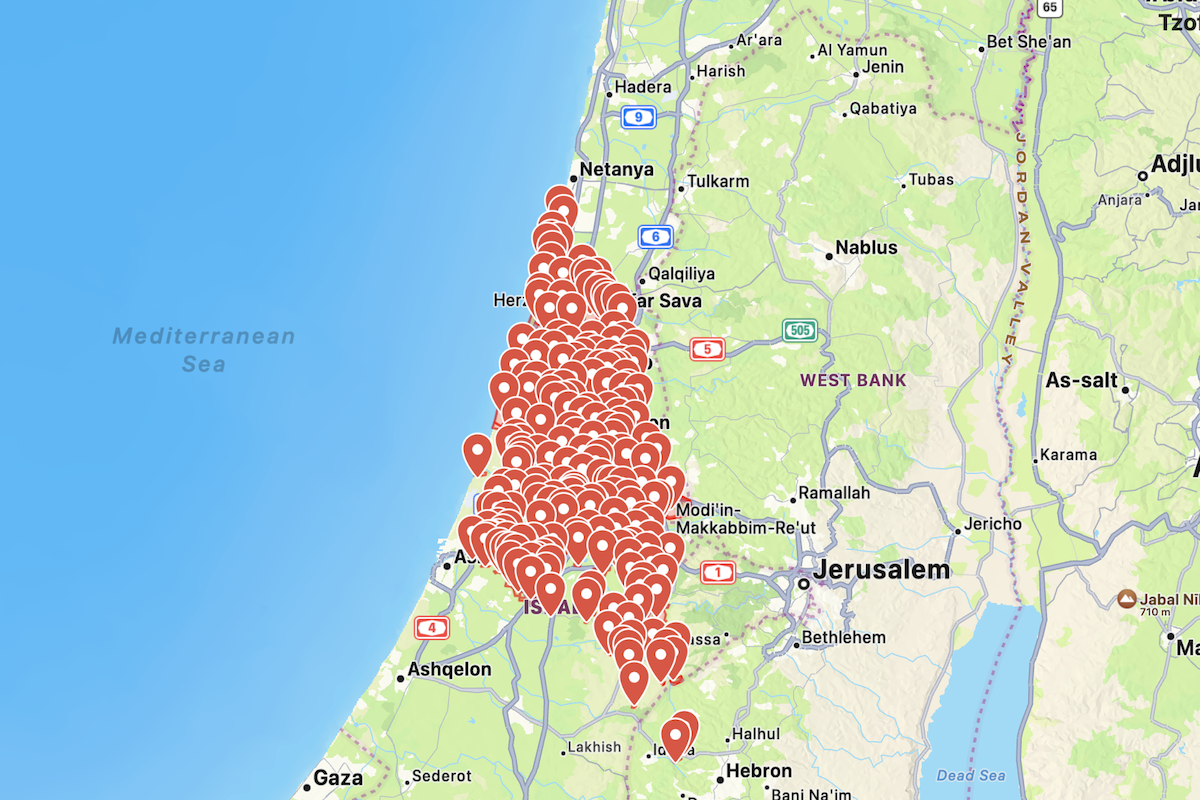Armed tribesmen raise their weapons in an anti-USA and anti-Israel rally, mobilizing additional Houthi fighters on the outskirts of Sanaa, Yemen, 24 December 2024. (Photo: IMAGO/Hamza Ali via Reuters)
With Hamas largely degraded and Hezbollah severely weakened, the Houthis in Yemen remain Iran’s last viable terror proxy still launching missile attacks on the Jewish state.
Israeli Defense Minister Israel Katz vowed on Christmas Eve that Israel would begin targeting Houthi leaders in Yemen.
“Just as we took care of (Yayha) Sinwar in Gaza, (Ismail) Haniyeh in Tehran and (Hassan) Nasrallah in Beirut, we will deal with the heads of the Houthis in Sana’a or anywhere in Yemen,” Katz stated during a visit to an IDF air defense operations center.
“We will act both against their infrastructure and against them to remove the threat,” he added.
Katz also issued a barely veiled warning to the Iranian regime that “whoever sponsors the Houthi terror in Hodeida or Sana’a will pay the full price.” The Israeli defense minister’s warning came just one day after he threatened to “decapitate” the Houthi leadership for its ongoing missile terror campaign against Israel.
In recent days, the Houthi rebels have stepped up their missile attacks on Israel.
On Tuesday morning, the Houthis fired another ballistic missile at central Israel, which was successfully intercepted by the Israeli military’s aerial defense systems. Aerial sirens were activated in the metropolitan Tel Aviv area and neighboring communities.

Sirens sounded across central Israel early Wednesday morning, Dec. 25, 2025 (Photo: Screenshot/Red Alert)
“Today’s threat in the sky is the ‘first missile war’ – we will not accept the fact that the Houthis continue to fire on the State of Israel,” Katz pledged.
The Israel Air Force (IAF) recently revealed details of its recent large and complex strike on Houthi terror targets in Yemen, located over 2,000 km (over 1,400 miles) from Israel.
While Israel is engaged in military operations against the Iranian-backed Houthis, Jerusalem is simultaneously seeking to isolate the Houthi militia by having it internationally designated as a terrorist organization.
Countries that currently define the Houthis as a terrorist organization include Israel, the United States, Canada, Australia, Saudi Arabia, the United Arab Emirates, New Zealand and Malaysia. However, no European country currently defines the Houthis as terrorists.
Israeli Foreign Minister Gideon Sa’ar recently emphasized that the Houthis threaten the international community by attacking shipping vessels through the strategically important Red Sea, which connects Asian producers to the European market.
“The Houthis pose a threat not only to Israel but to the region and the entire world,” Sa’ar stated.
“The direct threat to freedom of navigation in one of the world’s busiest shipping lanes is a challenge to the international community and the world order,” Sa’ar continued. “The first and most basic thing is to define them as a terrorist organization.”
Funded and armed by the ayatollah regime in Tehran, the Houthis have launched over 200 missiles and drones against Israel during the past year under the pretext that it is acting in solidarity with the Hamas terror group in the Gaza Strip. The Houthis have vowed to continue attacking Israel and international shipping as long as the war in Gaza continues.
The war began on Oct. 7, 2023, when Hamas terrorists invaded Israel and massacred 1,200 Israeli men, women and children. In addition, Hamas terrorists kidnapped 251 people from southern Israeli border communities and around 97 of the hostages are still believed to be held in Gaza.
Like the Islamic Republic of Iran and its terror proxies, the Houthis openly call for the destruction of the Jewish state.
































